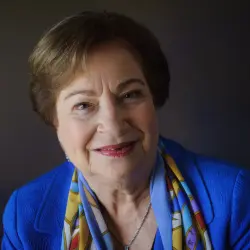

11:00 am EST - 12:30 pm EST
Past Event
After the build-up of more than 100,000 Russian troops at the Ukrainian border, the public release of two sweeping Russian security proposals, and a series of diplomatic exchanges with the U.S., North Atlantic Treaty Organization, and Organization for Security and Cooperation in Europe, there are few signs that Russian President Vladimir Putin will de-escalate the ongoing crisis at the border with Ukraine.
Why now and what is President Putin’s goal? How do events in the region, particularly in Kazakhstan, impact the unfolding crisis at the border with Ukraine? How can Europe reshape its security architecture to better respond to a new era of disruption, and where does the U.S. fit in?
On January 21, the Center on the United States and Europe at Brookings hosted two panel discussions with Brookings experts to explore these questions.
Viewers submitted questions for speakers by emailing [email protected] or on Twitter using #RussiaCrisis.
11:00 am - 11:45 am
Moderator
Panelist


11:45 am - 12:30 pm
Moderator

Panelist


Ling Chen, Ryan Hass, Jennifer Kavanagh, Michael E. O’Hanlon, Bruce Jones, Mireya Solís, Thomas Wright
July 2, 2025

Pavel K. Baev, Robert Einhorn, Sharan Grewal, Samantha Gross, Ryan Hass, Patricia M. Kim, Elizabeth N. Saunders, Yun Sun, Caitlin Talmadge, Shibley Telhami, Andrew Yeo
July 1, 2025

Ryan Hass
July 1, 2025